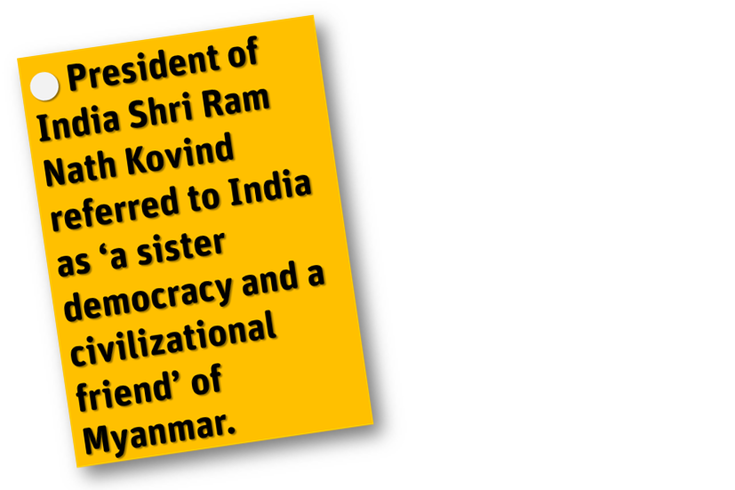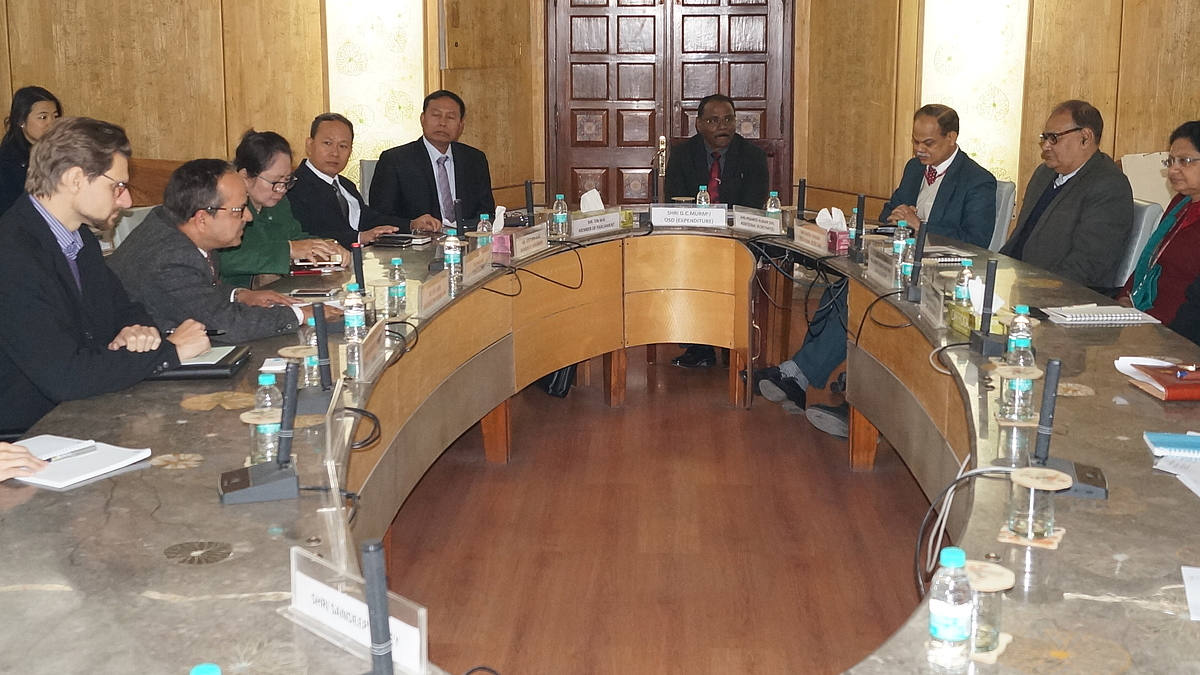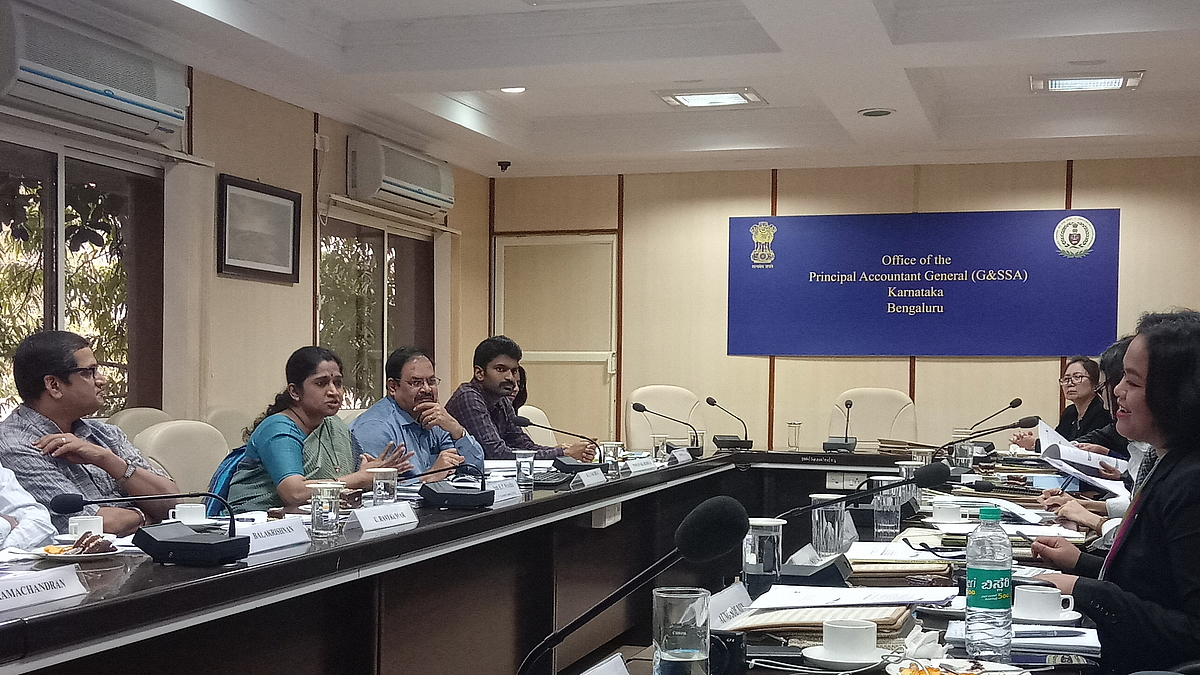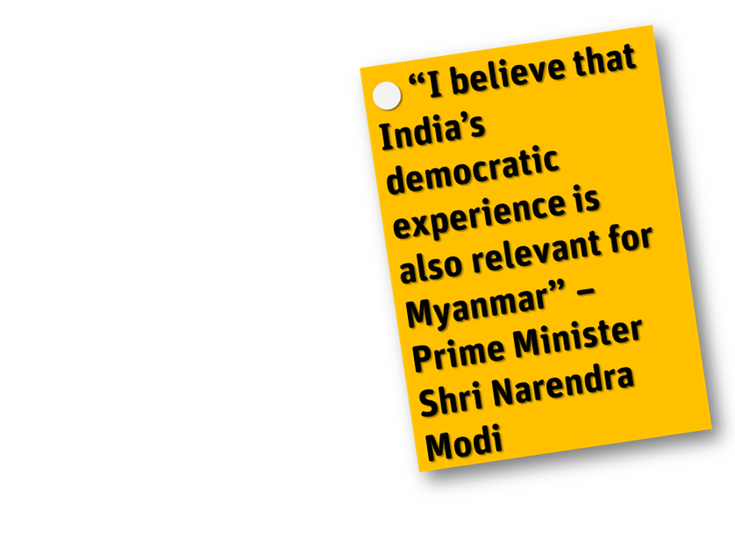News
Myanmar visit to federal India
Walking the federal transect of India

A 10-member delegation comprising politicians, government officials, economists and researchers from Myanmar came to India for an exchange on inter-governmental relations and practice of fiscal federalism. This visit spanned from 27 January to 3 February 2019, which was facilitated by Hanns Seidel Foundation (HSF) Myanmar, HSF India and the Indian Institute of Public Administration (IIPA). The visit led the delegation to all levels of India’s federal structure with meetings at Rajya Sabha, Lok Sabha, NITI Aayog, Ministry of Finance, Karnataka Legislative Assembly, Ministries of Panchayati Raj as well as district and village level legislature and administration. At IIPA Delhi, Prof. V. N. Alok and various experts presented the theoretical basis of India’s federalism and discussed with the delegates.
A constitutional institution of India’s federal structure is the Inter-State Council. Secretary Buhril presented its role in the centre-state relations, its various dynamics and how it works as a mechanism for dispute resolution between the states.

At the Ministry of Finance, Mr. G.C. Murmu, Officer on Special Duty (Expenditure) discussed with the delegates the streams of expenditure and vertical fiscal money flow in India. Meeting with the Finance Ministry officials[1] helped the delegates understand how the budget in India is formulated and public expenditures are met. Budget is not just a statement of income and expenditure, but it is a policy statement of the government and delineates the priority areas for development works, informed Mr. Yaduvendra Mathur, Additional Secretary at NITI Aayog, to the delegates. At NITI Aayog, the delegation learnt about the role and functioning of NITI Aayog. Mr Mathur also explained to the delegates how NITI Aayog is different from the Planning Commission that was abolished in 2014 and replaced by NITI Aayog, and its role in centre-state relations and promotion of cooperative federalism. The delegates too described the existing centre-state relations in Myanmar under the Myanmar Constitution of 2008 to draw a comparison with the Indian system.
The delegation took particular interest in the bicameral system of the Indian parliament and visited the Lok Sabha (lower house), Rajya Sabha (upper house) and Central Hall. The visit was preceded by a meeting at the Ministry of Parliamentary Affairs, with its Secretary and a Rajya Sabha member.
The Secretary of the Parliamentary Affairs Ministry, Mr Surendra Nath Tripathi, explained the rules and proceedings of Parliament. He further explained role of this Ministry in coordinating with the political parties represented in Parliament and planning and coordinating legislative and other official business in both Houses. This is one of the important ministries and it “serves as an important link between the two Houses of Parliament and the Government in respect of government business in Parliament”.[2] The delegates asked the member of Rajya Sabha, Prof. Rajeev Gowda, about the office, role, responsibility, privileges and power of a Member of Parliament. The exchange between Myanmar’s and India’s Members of Parliament was on their respective budgets, liberties and responsibilities.

After three days, the delegation continued for Bengaluru to get an impression of state-level governance, practice of horizontal and vertical federalism as well a sub-national bi-cameral system. The delegation took a guided tour of the both Karnataka Legislative Assembly and Council and paid a visit to the Speaker of the Karnataka Legislative Assembly. In a round table discussion with officials from the Parliamentary Affairs Department, the delegates discussed how the businesses of both houses are conducted and the state government is made accountable to the legislature in the State Assembly. Additionally to this, Ms E. P. Nivedita, the Principal Accountant General of Karnataka, explained India’s central and state audit system to the visitors.
The Myanmar delegates showed particular interest in the institution of state Human Rights Commissions. In the meeting with the Karnataka State Human Rights Commission, officials told the delegation that though the Commission was to protect the people’s human rights from criminals, practice revealed most complaints are being made against the police. Delegates asked about the nature and procedure of the commission, which is in exchange with other human rights organisations and NGOs. Usually, victims approach the Commission if their human rights are violated. However, the Commission can act, and has acted, suo moto and can issue notices which are respected by the judiciary. Currently, the Commission has over 6,000 cases, which have been raised through it.
As per the constitution of India, Panchayati Raj is a state subject and rules and regulations for the Panchayats are made at the state level. On this account, to know the status of devolution of functions, functionaries and finance in the state and to have an overview of the Panchayati Raj Institutions (PRIs), from the designated department itself, a meeting was organised for the delegation with the officials from the Rural Development and Panchayati Raj Department of the Government of Karnataka. In the meeting, the officials explained how the PRIs work, the ongoing government schemes being implemented by the PRIs, sources of their incomes and the application of information technology.

To see how the third layers of government work in practice, the delegation travelled to the district panchayat of Chikkaballapur, where the delegates first visited the district Panchayat where they interacted with the Development Officer, Deputy Executive Officer, other officers and elected representatives
The delegation visit was rounded up by the travel to a village panchayat in the Chikkaballapur district where the direct interaction with Panchayat Presidents and the village population provided the delegates with an authentic image and understanding of the operating procedures of the lowest federal level. The exchange on political structures, fiscal and administrative streams as well as economic challenges on the ground finalised the complete pictures the visitors from Myanmar got on the entire Indian federal system.
--------------------------------------------------------------------------------------------------------
[1] Mr. G.C. Murmu, Officer on Special Duty (Expenditure)
Mr. Pramod Kumar Das, Additional Secretary (Expenditure), Department of Expenditure (here after DoE)
Mr. Rajeev Ranjan, Additional Secretary [Public Finance (States)], DoE
Mrs. Annie George Mathew, Joint Secretary, (Pers.), DoE
Mr. Sanjay Prasad, Joint Secretary, [Public Finance Central -II], DoE
Mr. H. Atheli, Director (Admn.), DoE
Mrs. Swayamprava Pani, Joint Director
